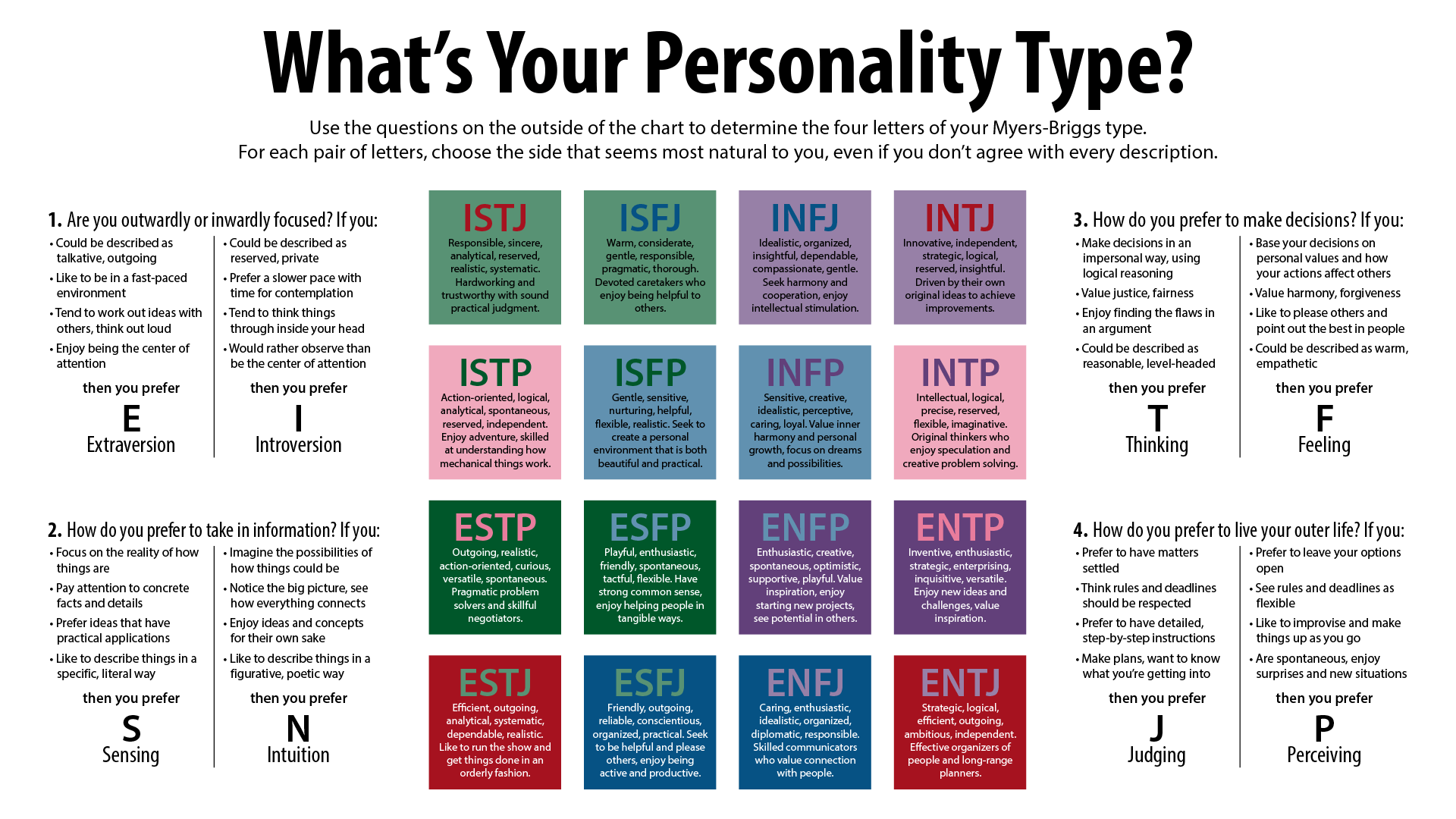Personality Type & Monogamy
Q – Which personality group is the most monogamous?”
A – The Guardians personality types are the most traditionally loyal among all the groups.
- ESTJ – “The Supervisors”
- ISTJ – “The Inspectors”
- ESFJ – “The Providers”
- ISFJ – “The Protectors”
They are fiercely loyal to their families, communities and employers. On top of that, they are faithful to the traditions and values that those who went before them passed along. We know them for their hard-work which relates to their sense of duty which is synonymous with loyalty. The Feeling, especially Turbulent, Guardians loyalty is likely a combination of a sense of duty with a heavy dose of emotionality mixed in. They’ll see their loyalty as being faithful to others and supporting them. Thinking Guardians loyalty is more likely to come from a sense of duty and a need to see things through to a successful end. These personality types, especially Assertive ones, are less likely to involve emotions when they consider their loyalties. They are loyal to the “tried and true”.
Q – Which personality seeks commitment & avoids conflict?”
A – ISFJs are committed to their relationships. They have very intense feelings, which is not immediately apparent to others because they tend to hold things inside themselves without expressing them, unless they have a strong reason to do so. Their intensity of feeling makes their intimate relationship their first priority in life, with the possible exception of God. They seek monogamous, lifelong commitments, and can be depended upon to be faithful and loyal to their mates once they have made a commitment.
Personality Quiz
These are external sites that offer FREE Personality Type questionnaires. If the links are old or if you know of a better FREE personality type quiz, please contact us.
“16 Personalities” – http://www.16personalities.com/free-personality-test
“TypeFinder Personality Test” – http://www.truity.com/test/type-finder-research-edition
About Briggs Myers
The 16-type system developed by Isabel Briggs Myers is the most commonly used system of personality type in the world, and provides an easy-to-understand basis for studies on compatibility. The 16-type system asserts that our fundamental differences in thinking, making decisions, and organizing our lives can be understood by measuring our preferences in four key areas:
- Extraversion/Introversion: This dimension refers to where you focus attention and get your energy. Extraverts are focused on the external world and other people, and are energized by external stimulation and interaction with others. Introverts are more focused on their internal world, thoughts, ideas, and feelings, and get energy from spending time in solitary activity or quiet reflection.
- Sensing/Intuition: This dimension refers to how you prefer to take in information. Sensors gather information in a very concrete, detail-oriented, and factual way. They tend to be practical and oriented to the present moment. Intuitives tend to be more abstract in their perceptions, and tend to think more about meaning, connections, and possibilities. Intuitives are often more imaginative than realistic.
- Thinking/Feeling: This dimension refers to how you prefer to make decisions. Thinkers prefer decisions that are based on facts or data, and like to reason things out logically. Feelers prefer decisions that are consistent with their values and help to build harmonious relationships.
- Judging/Perceiving: This dimension refers to how you prefer to organize your life. Judgers tend to prefer structure, schedules, and plans. They like clear expectations and feel accomplishment from completing tasks. Perceivers prefer an open-ended, spontaneous and flexible existence. They enjoy feeling that their options are open and that there are many possibilities available.
The Four Temperaments
Some of the most important recent work done in the field on Personality Typing has been done by David Keirsey, who has created the theory of temperament associated with type.
In his research, he has combined the 16 types into four distinct temperament categories.
SJ – “The Guardians”
Keirsey describes the SJ group’s primary objective as “Security Seeking”. The SJ grouping includes the types:
SP – “The Artisans”
Keirsey describes the SP group’s primary objective as “Sensation Seeking”. The SP grouping includes the types:
NT – “The Rationals”
Keirsey describes the NT group’s primary objective as “Knowledge Seeking”. The NT grouping includes the types:
NF – “The Idealists”
Keirsey describes the NF group’s primary objective as “Identity Seeking”. The NF grouping includes the types:

